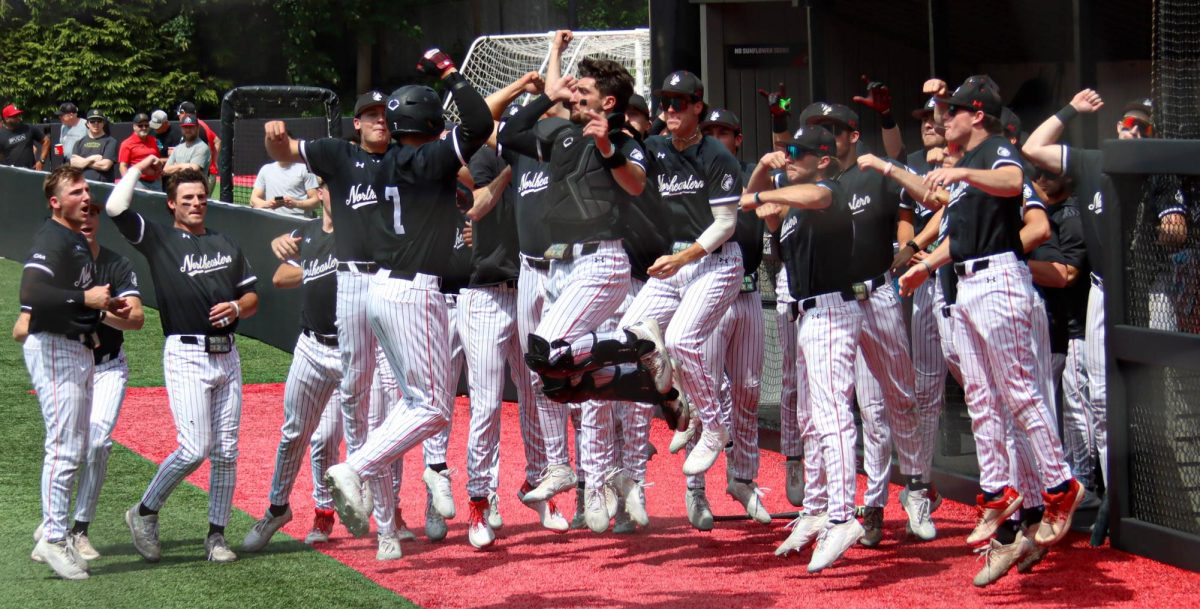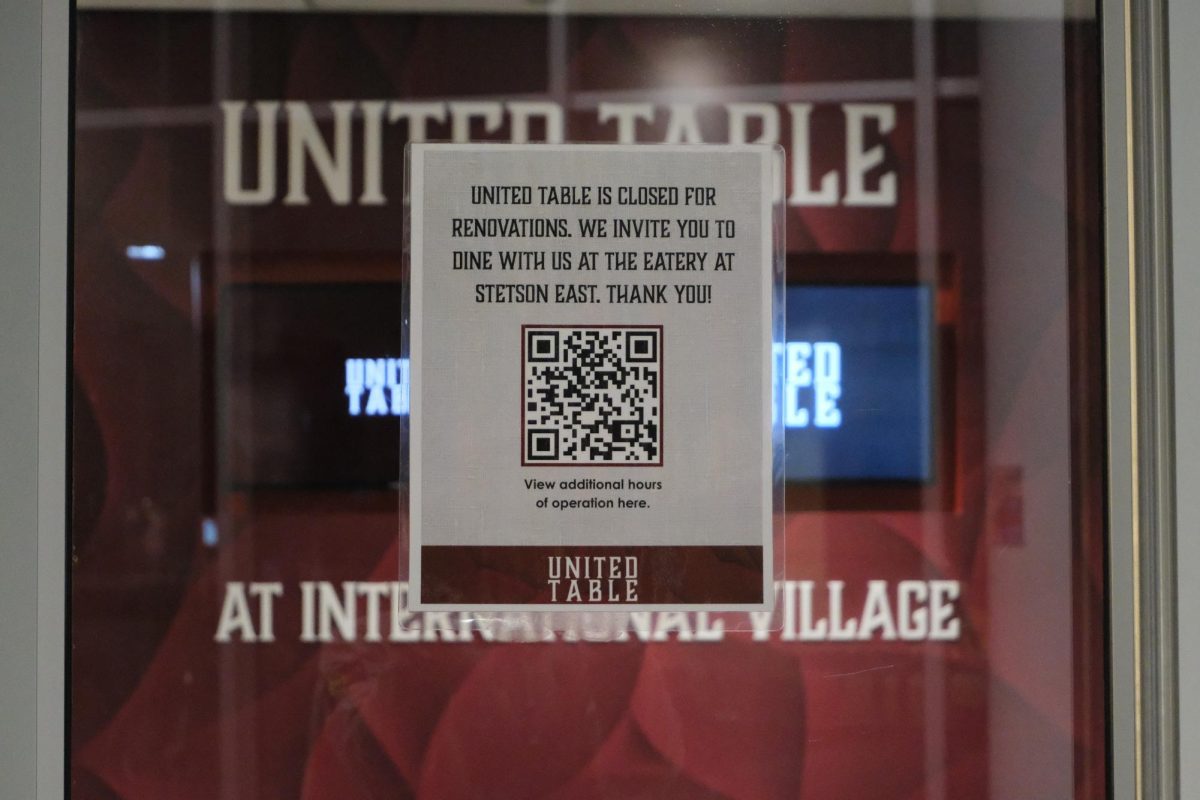Rats run rampant through the streets of Boston. This pest problem is not new, but Boston residents continue to grow frustrated.
Orkin’s 2023 Most Rat-Infested Cities list ranked Boston as the thirteenth rattiest city in the country.
Now, the president of the Boston City Council, Edward “Ed” Flynn, is trying to make a difference. Flynn is working to establish a stand-alone pest control department in the city’s government.
“My major focus is working with the mayor’s office to establish this stand-alone city department. I think that’s crucial in ensuring that one department coordinates all pest control issues across the city,” he said. “Right now we have many different departments that deal with city pest control, I’m pushing the city government to move forward in [a stand-alone department] direction, this is going to be a priority of mine for 2024.”
But as the city of Boston grapples with the introduced department’s implementation, Boston residents continue to struggle taking on rodents themselves.
Payton McAlice, a 2023 Northeastern graduate and former Mission Hill resident, faced a rat problem during his time in the neighborhood. “As fall became winter, we started seeing our food being very clearly eaten by rats, we could hear scurrying in the night,” he said.
McAlice explained that the situation escalated as the rats got more comfortable, eventually showing themselves during the daytime. His landlord did not take action — in fact, McAlice said, the landlord blamed the problem on the residents’ cleanliness.
“I think it’s definitely a Boston issue, I don’t know what the city is actively doing to try to address it,” McAlice said. “I think the solution probably comes down to making landlords more accountable for keeping their places pest-free.”
Aware of this sentiment, Flynn is looking to tackle this problem from a holistic angle.
“Something we need to do is educate landlords, educate the public on the proper way of taking out trash,” Flynn said in an interview with The News. “It’s not as easy as saying, ‘take out your garbage and put it on the street,’ there has to be a systematic way to do that.”
For Flynn’s desired stand-alone pest control department to come to fruition, he requires Mayor Michelle Wu’s approval and for the budget to adapt for the department.
The Boston City Council has been working to address the issue over the course of 2023. Flynn and Councilors Liz Breadon and Gabriela “Gigi” Coletta sponsored an order for a hearing about pest control Jan. 11.
The order, Docket #0144, discusses the rise in Boston’s rodent activity and how the issue impacts public health and residents’ quality of life. The order states that “it is important that the city has measures in place to adequately deal with the increase in rodent activities, including increase in inspections, public awareness campaigns and public outreach.”
Some Boston residents agree with Flynn’s take on the rodent problem: tackling it with city resources.
Megan Moffat, a fourth-year behavioral neuroscience major at Northeastern University and current Mission Hill resident, said rats have been confidently wandering throughout her apartment and neighborhood at-large. Moffat said the issue is bigger than singular landlords and tenants.
“At this point, I think it’s the City of Boston’s responsibility. The landlords can only do so much,” she said.
Flynn’s plan takes inspiration from New York City, which has taken action against its rat problems under the administration of Mayor Eric Adams, with a focus on public education. The City of New York’s website reports that its anti-rat efforts were concentrated on managing trash to keep the rodents from their main food source. In April, New York City appointed Kathleen Corradi as the first citywide director of rodent mitigation, a job many refer to as the “rat czar.” Corradi was tasked with coordinating between the numerous government agencies and expanding education on the issue to the public.
Boston’s surrounding cities and towns have also taken steps to combat rodent problems. The Town of Brookline has a Rodent Action Plan which works in part with Berger Food Safety Consulting on pest control inspections in food establishments. The Brookline Department of Health also works with Modern Pest Control to monitor rodent activity in the town.
Somerville created a Rodent Control Program with comprehensive public education about prevention and services in the city. Somerville also offers free residential rodent control assistance, where city health inspectors visit the property and, upon evidence of rodents, recommend measures that owners and tenants must agree to take. In exchange for owner and tenant action, the city provides abatement services.
Boston’s rodent response is currently spread across a multitude of departments, including Boston Inspectional Services. John Ulrich, assistant commissioner of environmental services, and his department are an enforcement division of Boston Inspectional Services, tasked with the job of enforcing the State Sanitation Code.
“The homeowner or property owner are responsible for the mitigation of rodent activity on their property. That’s where the enforcement of the sanitary code comes in,” Ulrich said in an interview with The News. When Ulrich’s team issues violations to private properties, the homeowner is responsible for addressing the problem, often in the form of hiring an exterminator.
“Rodents need food, water and shelter, that’s the golden triangle of rodent activity,” Ulrich said. “Food is the main driver of it. In the city, trash is really the number one food source.”
Similar to Flynn’s emphasis on educating the public about proper trash storage, Ulrich stresses the intelligence of rats and the importance of trash storage.
“They’re just really well adapted to humans. They’re intelligent, they adapt quickly to changes in the environment and we provide them,” Ulrich said. “When you live in a city that’s dense that creates a lot of trash, it’s making sure that trash is stored properly and that we’re reducing the food source.”
While city officials and employees begin efforts to mitigate the rat issue, Boston residents want their frustrations to be heard. The service Boston 311 provides a partial solution. When a resident spots a rodent they can call the telephone number to connect with constituent service representatives for non-emergency services, providing Bostonians with a platform to file their complaints. There have been over 3,900 rodent-related complaints in 2023.
Ulrich’s team responds to the 311 rodent complaints. “311 is the best tool to communicate with city services and definitely the best tool to communicate with this division. We need folks to report rodent activity when they see it,” Ulrich said.
While the city works to further educate ways to reduce rats, residents’ patience dwindles as rats scamper through their kitchens and neighborhoods. City officials attempt to create a sense of community and teamwork in their efforts toward a solution.
“This is a public health emergency attacking every neighborhood in Boston,” Flynn said. “It’s about all of us working together to improve the quality of life in public health for all residents. Boston works best when we work together.”











